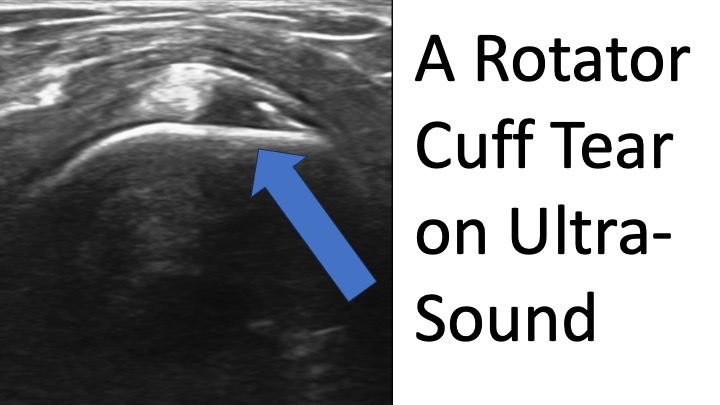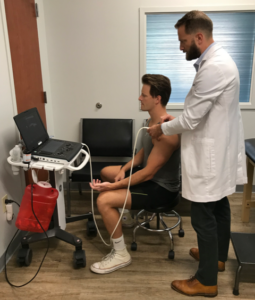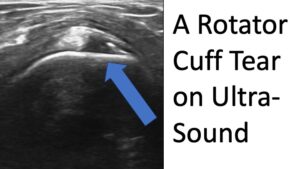When Can I Get Back to Work After Rotator Cuff Repair?

Return to work after rotator cuff repair.
You have a painful rotator cuff tear. You try oral medications and anti-inflammatories, physical therapy, chiropractic care, watchful waiting, massage therapy. You change your diet and lower your sugar intake. You try regenerative therapies like PRP injections.
You try everything, and yet still you have pain.
The answer is clear. While discussing with your orthopedic shoulder specialist, rotator cuff repair is your best and only option to get you back to living and loving your life.
Yes, a well-trained shoulder specialist such as Dr. Johnny T. Nelson, MD is able to repair your rotator cuff. But what does this mean for you? How will your life be affected?
One of the most frequent questions that patient’s ask while discussing rotator cuff repair is:
When can I get back to work?

This is not a simple question, and ultimately the answer is usually different for every patient. That is why it is very important to have a personal, one-on-one visit with your orthopedic shoulder specialist.
But if you are alone, searching for guidance and answers to this question, here are some pointers.
Rotator cuff repair procedure is always done as an outpatient, meaning you will go home the same day that the procedure is performed. No lengthy hospitalization is necessary. You will be back home, resting and healing in your home environment on the day of the procedure. More information about the healing process after shoulder arthroscopy can be found here.
But you cannot return to work after rotator cuff repair immediately.
You will need at least one week of strict rest, mostly spent lying down with ice on your shoulder allowing the swelling to subside. While this process under the guidance of Dr. Nelson’s protocol not very painful, it is important that you have at least one week devoted to rest of the shoulder and the entire body. During this time, of course it is okay to get up and walk, go from one room to the other, and go on simple short excursions outside the home. It is also important that you move your hand, wrist, and elbow.
But the first week after the procedure is certainly not a time to return to work, no matter what you do.
After 1 week, most patients are able to sit up comfortably. For some patients, they are comfortable enough to sit at a desk or a computer, answer phone calls, and talk for extended periods on the phone. Therefore, some patients may be able to return to work at 1 week or 2 weeks if they do mostly sitdown, desk type work.
But even in these situations, you may require a shortened shift or periods of rest. So it is very important that your employer is comfortable with you using such accommodations.
Depending on the shoulder procedure that you had done, some patients must keep their arm strictly without movement, such as a rotator cuff repair. For other surgeries on the shoulder where rotator cuff repair is not performed, patients return to using their hand for waist level and gentle activities as soon as they can tolerate it. However, this does not mean that the patient returns to repetitive use or any forceful gripping, pushing, or pulling.
Are you having a rotator cuff repair? Plan out enough time for healing. Many patients are able to return to desk work at 1 to 2 weeks while wearing their sling. But some other patients may not be comfortable enough to do so.
If you work heavy labor, you will not be able to return to full work for 4 to 6 months.
You can probably return to work wearing your sling and without use of the operated arm 4 weeks after surgery. However, the use of the operated arm to push, pull, or perform any heavy lifting or climbing is not allowed for 4 to 6 months. This can be a long time to stay out of work. But it is absolutely essential that you do not perform heavy work with a newly repaired rotator cuff.
Do you have a rotator cuff tear? You need to learn more about your options. You need to discuss the healing process with an experienced shoulder specialist. Dr. Johnny T. Nelson, MD is a shoulder surgeon serving patients in Raleigh, Durham, Chapel Hill, Garner, Knightdale, Cary, and all of North Carolina. Call 919-872-5296 today to schedule a consultation.
When Can I Get Back to Work After Rotator Cuff Repair? Read More »



 How do I Know If I Have a
How do I Know If I Have a  the bones, x-rays do not show us the health of the rotator cuff. Sometimes a specialist can get information on the health of the rotator cuff with a physical exam, but still rotator cuff tears can be missed. In-office ultrasound helps shoulder specialist such as Dr. Johnny T. Nelson see rotator cuff tears quickly and easily. Furthermore, ultrasound gives you and Dr. Nelson peace of mind that you do not have a rotator cuff tear, and performing simple nonsurgical treatment is probably the best way to go.
the bones, x-rays do not show us the health of the rotator cuff. Sometimes a specialist can get information on the health of the rotator cuff with a physical exam, but still rotator cuff tears can be missed. In-office ultrasound helps shoulder specialist such as Dr. Johnny T. Nelson see rotator cuff tears quickly and easily. Furthermore, ultrasound gives you and Dr. Nelson peace of mind that you do not have a rotator cuff tear, and performing simple nonsurgical treatment is probably the best way to go.
